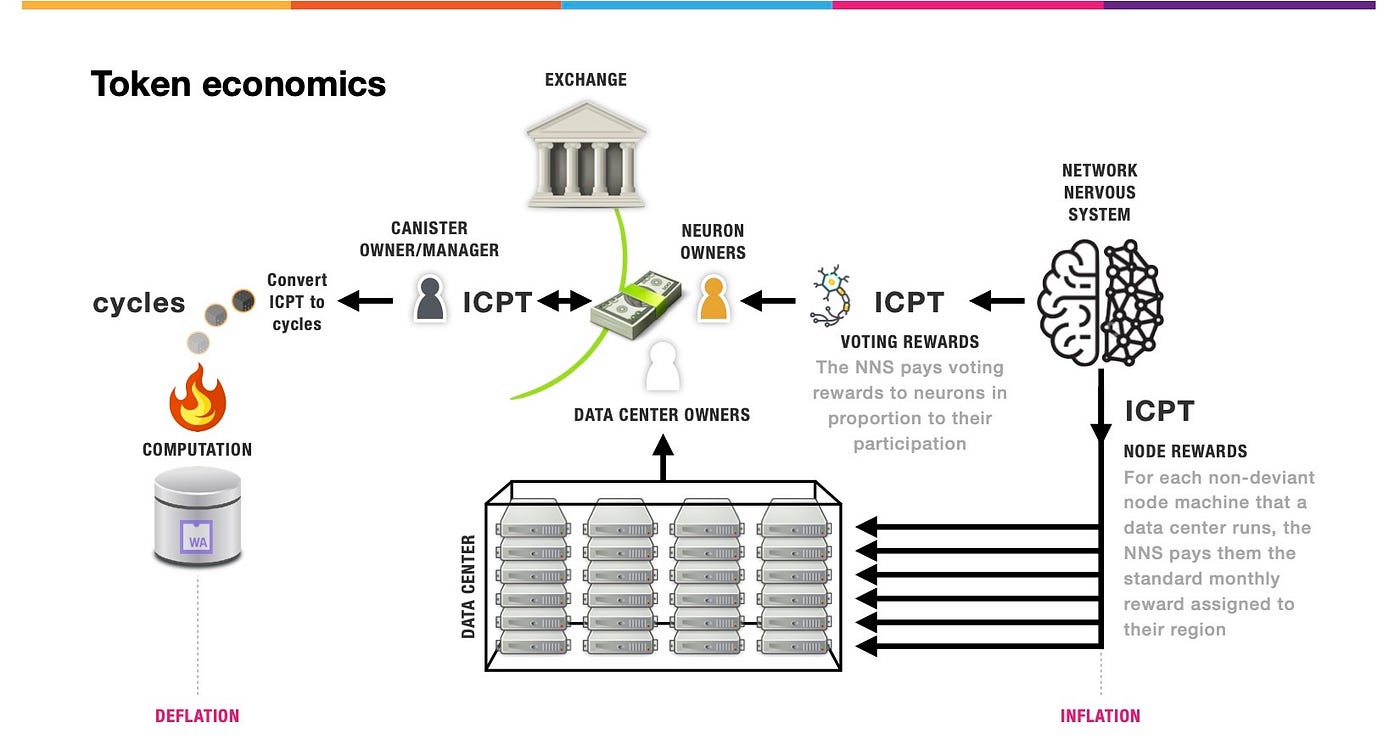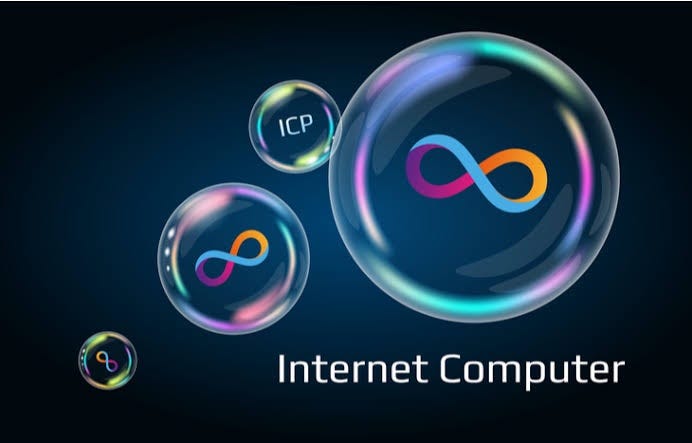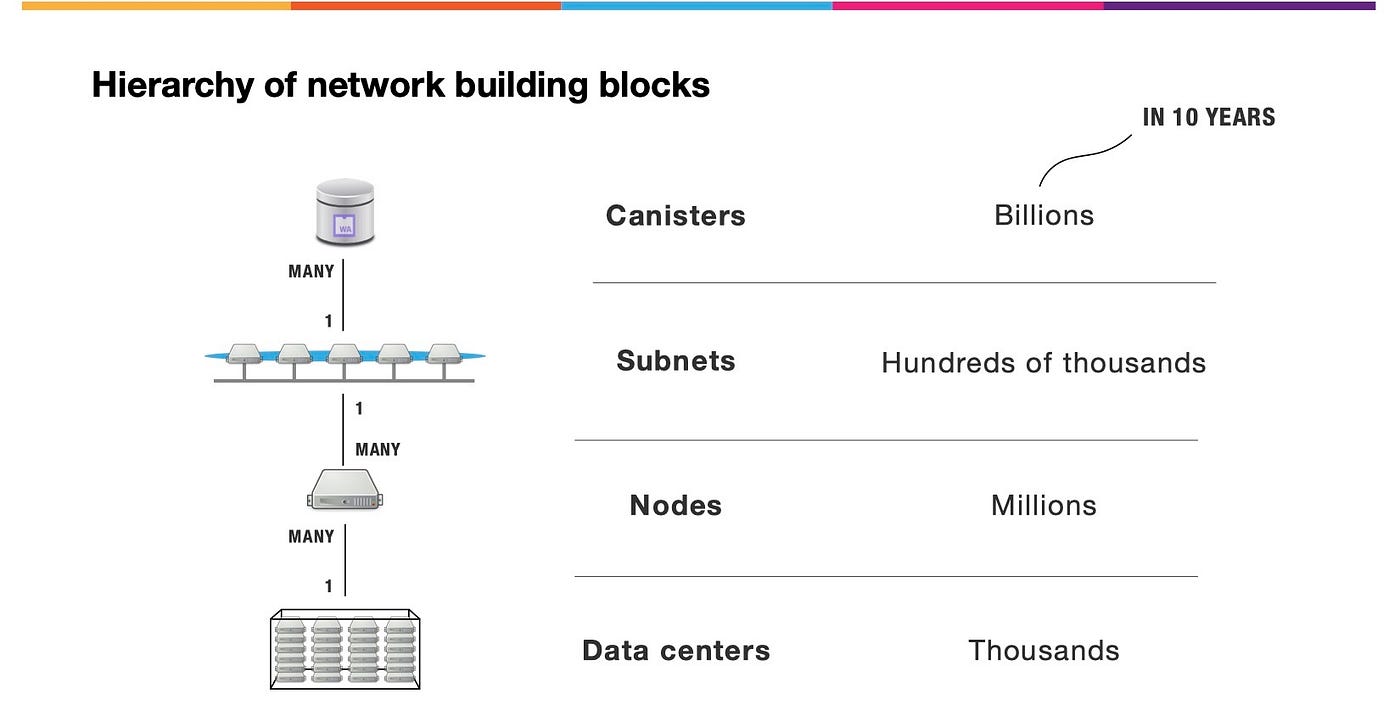Deep Review of Internet Computer Protocol
Introduction
The Internet Computer Protocol (ICP) is a revolutionary advancement in the realm of decentralized computing and blockchain technology. Developed by the DFINITY Foundation, the Internet Computer Protocol aims to create a fully decentralized and secure network that can host smart contracts, websites, and internet services without relying on traditional centralized servers. 
Key Features
Here is a detailed analysis of the key aspects of the Internet Computer Protocol:
Decentralization and Security
The ICP leverages a network of independent nodes to host and execute smart contracts and applications. This decentralized approach ensures that there is no single point of failure, enhancing the security and resilience of the network. By removing the need for centralized servers, the ICP mitigates the risk of censorship and data manipulation.
Scalability and Performance
One of the key features of the Internet Computer Protocol is its scalability. The network is designed to scale horizontally, allowing it to handle a large number of transactions and computations in parallel. This scalability ensures that the network can support a wide range of decentralized applications without compromising performance.
Canister Smart Contracts
The Internet Computer Protocol introduces the concept of canister smart contracts, which are self-contained units of code that can be deployed and executed on the network. Canisters provide a secure and efficient way to deploy and interact with smart contracts, enabling developers to build complex decentralized applications with ease.
Internet-Scale Blockchain
The ICP aims to create an internet-scale blockchain that can host a wide range of applications and services. By leveraging the power of the Internet Computer Protocol, developers can build and deploy applications that are accessible to users across the globe, without the need for traditional server infrastructure.
Governance and Tokenomics
Governance on the Internet Computer Protocol is managed through the use of the ICP utility token. Token holders have the ability to vote on network upgrades, protocol changes, and other governance decisions. The tokenomics of the ICP ecosystem are designed to incentivize participation and contribution to the network, ensuring its continued growth and development.
Interoperability and Integration
The Internet Computer Protocol is designed to be interoperable with other blockchain networks and protocols. This interoperability allows developers to build applications that can interact with multiple blockchains and decentralized networks, opening up new possibilities for cross-chain communication and integration.
In conclusion, the Internet Computer Protocol represents a significant advancement in decentralized computing and blockchain technology. With its focus on decentralization, scalability, security, and interoperability, the ICP has the potential to reshape the way we think about internet services and applications. As the network continues to evolve and grow, we can expect to see a new wave of innovative decentralized applications built on the Internet Computer Protocol.
Benefits of the Internet Computer Protocol
- Decentralization: The Internet Computer Protocol is built on the principles of decentralization, ensuring that applications and data are not controlled by any single entity.
- Scalability: The ICP is designed to be highly scalable, allowing developers to build and deploy applications that can handle a large number of users and transactions.
- Security: The protocol prioritizes security, using advanced cryptography and consensus mechanisms to protect user data and transactions.
- Global Accessibility: Applications built on the Internet Computer Protocol are accessible to users worldwide, without the need for traditional server infrastructure.
- Governance and Tokenomics: The ICP utility token allows token holders to participate in governance decisions, ensuring the network's growth and development.
- Interoperability and Integration: The protocol is designed to be interoperable with other blockchain networks, enabling cross-chain communication and integration.

Limitations of the Internet Computer Protocol
- Complexity: Developing applications on the Internet Computer Protocol can be complex and require a learning curve for developers unfamiliar with the platform.
- Performance: While the ICP aims for scalability, there may still be performance limitations compared to traditional centralized systems, especially for certain types of applications.
- Network Congestion: As with any decentralized network, the Internet Computer Protocol may experience network congestion during peak usage times, affecting transaction speed and cost.
- Regulatory Uncertainty: The regulatory environment surrounding blockchain and decentralized applications is constantly evolving, which may pose challenges for projects built on the ICP.
- Dependency on Internet Computer Network: Applications built on the Internet Computer Protocol are reliant on the network's stability and security, which could be a potential point of failure.
- Limited Adoption: Due to being a relatively new protocol, the adoption of the Internet Computer Protocol may be limited compared to more established blockchain platforms.

Partnerships of the Internet Computer Protocol
- Tonic Labs: Tonic Labs is a design and development firm that has partnered with the Internet Computer Protocol to enhance user experience and interface design for applications built on the platform.
- Fleek: Fleek is a decentralized web hosting platform that has collaborated with the ICP to provide hosting services for dapps and websites on the Internet Computer Network.
- Enso: Enso is a blockchain development company that has partnered with the Internet Computer Protocol to explore potential use cases and develop innovative solutions leveraging the ICP technology.
- DFINITY Foundation: The DFINITY Foundation is the organization behind the development of the Internet Computer Protocol and has established partnerships with various entities to promote the growth and adoption of the platform.
- ICP Ecosystem Partners: The Internet Computer Protocol has a growing ecosystem of partners, including blockchain projects, developers, and service providers, who collaborate to build and support applications on the ICP network.

Future Integrations of the Internet Computer Protocol
- DeFi Projects: The Internet Computer Protocol is expected to see future integrations with various decentralized finance (DeFi) projects, enabling the creation of innovative financial applications such as lending platforms, decentralized exchanges, and asset management tools.
- Enterprise Solutions: As the ICP network matures, it is likely to attract partnerships with enterprise companies looking to leverage blockchain technology for secure data management, supply chain tracking, and other business applications.
- IoT Devices: The Internet Computer Protocol could potentially integrate with Internet of Things (IoT) devices to enable secure communication and data transfer between connected devices, expanding the capabilities of IoT networks.
- NFT Marketplaces: With the growing popularity of non-fungible tokens (NFTs), future integrations with NFT marketplaces on the ICP network could provide a platform for artists, creators, and collectors to buy, sell, and trade digital assets.
- Cross-Chain Compatibility: The ICP network may explore integrations with other blockchain networks to enable cross-chain compatibility, allowing for seamless asset transfers and interoperability between different blockchain platforms.

Conclusion
The Internet Computer Protocol offers a range of benefits for developers and users, including decentralization, scalability, security, global accessibility, governance, and interoperability.
while the Internet Computer Protocol offers many benefits, it also has limitations such as complexity, performance challenges, network congestion, regulatory uncertainties, network dependencies, and limited adoption. Developers and users should be aware of these limitations when considering building or using applications on the ICP.
The partnerships help to strengthen the Internet Computer Protocol ecosystem, drive innovation, and expand the capabilities of decentralized applications built on the platform.
ICP Future integrations have the potential to enhance the functionality and adoption of the Internet Computer Protocol, opening up new possibilities for decentralized applications and services built on the platform.
Disclaimer: This review is for informational purposes only and should not be considered as financial advice. Users are encouraged to do their own research before engaging with any DeFi project.

































